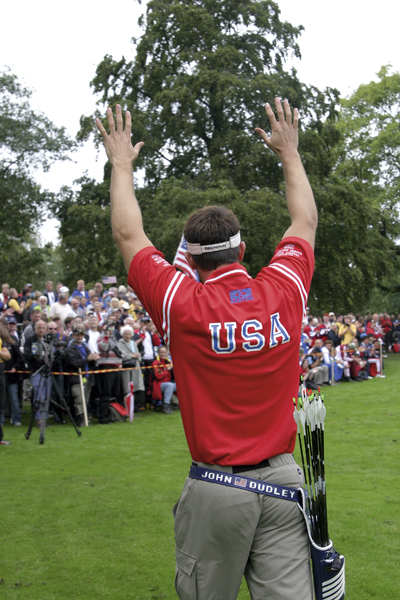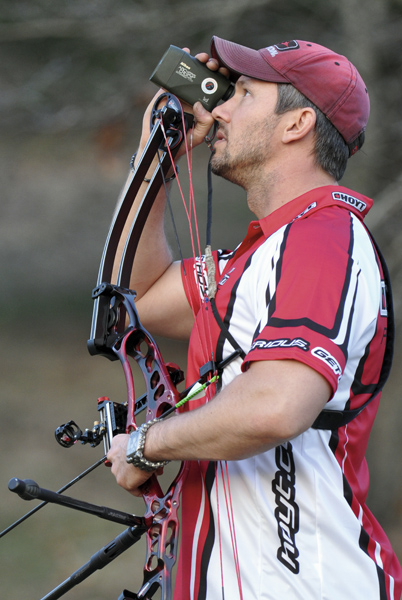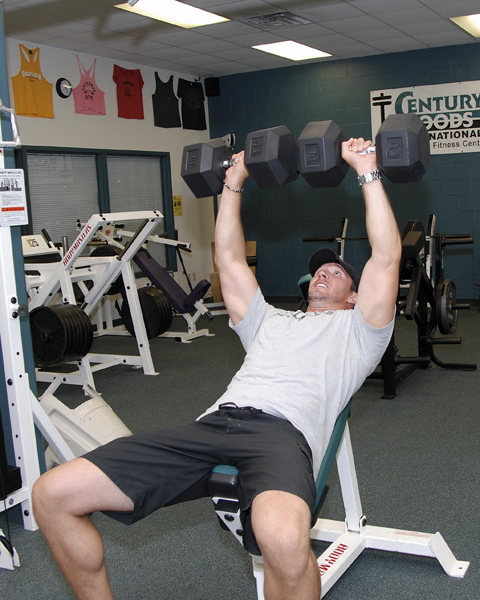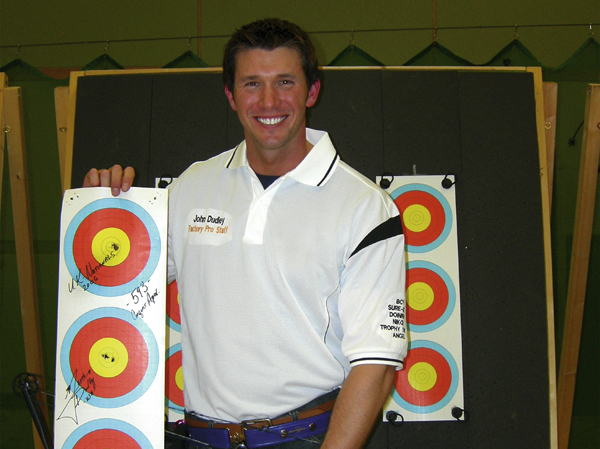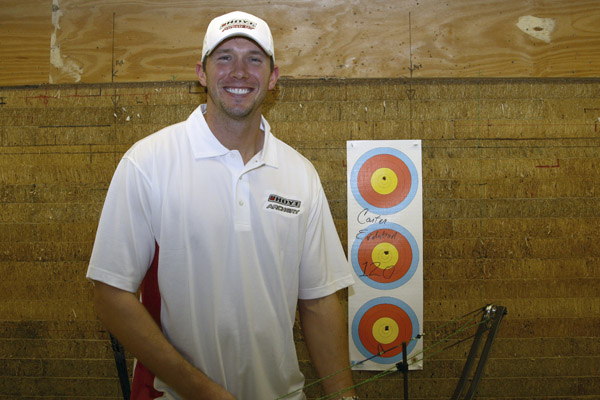Becoming a better archer is all about earning your S.C.A.R.S. John Dudley shows you how
Every summer, archers around the world dial in their kits, plan their holiday time for tournaments and book flights. This was always an exciting time for me as a competitor. The slate is wiped clean, its time for a new start to a new year, new rankings and another shot at a long-awaited rematch. The question is, are you ready for it? Are you better than you were last year? Have you done what it takes to raise the bar in your game since you can most certainly guarantee everyone else has? I am here to tell you that I have had the good and also dealt with plenty of the bad. One thing I taught myself is that there is a method that can put you on top, but only if you are willing to earn it. This is my personal mantra, my method of being at my best and if you truly want to be at your best you will need to get some battle S.C.A.R.S.
Sacrifice
The first letter “S” stands for sacrifice. This is pretty damn self-explanatory. Nothing worth having comes without sacrifice. You can tell yourself that right now and it doesn’t matter what part of life you apply that to. Your archery, your marriage, your career, what your kids turn out to be. Nothing worth having comes without sacrifice! Being a top-level archer means you put your sport in front of any other distraction you can possibly think of. All of your friends are catching an easyjet flight to Amsterdam for the weekend? Too bad – you need to sacrifice your party time for more time on the range. You really want a new pair of Uggs? Too bad – you need to use that money for something that is going to help you in your archery.
What level of archer you want to be is really up to you, but I can promise you that the top-level pros out there aren’t taking two weeks of their holiday time to soak up some sun somewhere. They are in a tournament so the can keep moving forwards and stay sharp.
Looking back on my career I can tell you a big sacrifice I had to make. Nine times out of 10 this could have been a stupid choice, but it is what I felt I had to do to take the next step for what I loved. I had a full ride for college football, I was a great player and I’m certain if I could’ve avoided injury I could have played for a long time. But after being at school a few months I realised I was at a crossroad. I either went right and committed to archery, or stayed left and dropped everything else for football. I went right. I walked out of school the weekend after I shot my first competitive archery tournament. Something just felt right about it. My parents flipped out, but one year later I was in the semi-pro class standing on the line shooting for first place at the ASA 3D World Championship. One year later I was a pro, making shoot-offs with archers who were once my peers and making money shooting a bow. I didn’t enjoy my youth years. I didn’t party or take trips to Cancun and go wild on breaks. I was always home, sighting in my outdoor arrows getting ready. It was all about making sacrifices.
Commitment
Let me tell you something. Motivation is what gets us going, but commitment is what keeps us going. You have to be 100 per cent committed to be at your absolute best at something. There are a lot of shooters out there that cling to their coaches. For certain things this could be an advantage, but for many others it manifests dependence. A good coach shows you the tools you need to win. A great coach shows you the tools and then gives you some motivation to get going. From there though, it has to be your commitment that keeps you plowing ahead and sticking things out even when they seems impossible. Commitment is when your alarm goes off at 5am because the first hour before work is when it’s calmest at the range and you can get in some practice. Commitment is sitting up and turning off the alarm and making it happen instead of hitting snooze.
To understand commitment, my best example of this is target panic. Nearly every archer will deal with it. There are releases and shooting techniques that help fix the problem. However, there are only a handful of people that are actually committed enough to stick with doing what they need to do to fix it.
A perfect example is a back tension release. How many people do you know that need to shoot one but don’t, because “they only like to practise with it”? They won’t shoot it in tournaments because they don’t feel like they have control. Maybe you’re that person! Well guess what, you have already lost control, that’s why you can’t keep your pin on the target. Why not earn a S.C.A.R and commit to fixing a major problem?
Attitude
Attitude is everything. It’s sad how many potentially great archers don’t understand that statement. Let me expand – attitude is everything, and without it you are going to be nothing. A great attitude will get great results. A great attitude helps you shut that alarm off at 5am and say, “Alright, it’s time to kick some ass.” A poor attitude is waking up at your 5am alarm and thinking, “Oh my god, why do I do this, this sucks.” Your attitude dictates many things in your mind, including your self-image, and it also has an effect on your physical health as well. A poor attitude is like a heavy anchor that will drag every possible positive achievement down to the bottom of the abyss.
Here is an example from my personal archives. In the late 1990s I was a great shooter, but I never did much indoor shooting. It wasn’t for any reason other than I shot outside a lot. My attitude towards indoor shooting was, “I hate it, how boring can this possibly be, it makes me sick shooting at the same thing all day.”
Guess what: I did suck at it. Even though I was top level 3D shooter that could shoot as good as it got at 50 metres, I could be beaten by 70 per cent of the people at an indoor league. It was attitude. A few years later I had it set in my mind to beat a certain individual, and I knew my only place to meet him head-on was indoors. So my attitude changed. I told myself, “You are going to get so good at this that you won’t want to go outside again.” I told myself to make my weakness one of my strengths. So I focused on getting some S.C.A.R.S indoors. I shot a 597 at the US Indoor Nationals, where there is some of the toughest competition in the world. I tied the world record at 25 metres indoors and I won the British Indoor National that year as well as a guest shooter. It was all because of attitude, not because of skill. I made my mind up to be all I could as an indoor shooter.
Recover
I am a firm believer in knowing how to recover. There are several elements to this but recovery is essential to growth. First, let me touch on the subject of recovering from upset or a loss. This is where a lot of great athletes let one moment affect the first three S.C.A.R.S letters I just talked about. Some people just can’t take the bad stuff.
I learned to let it roll off my back. Losses are going to happen. Bad performances are going to happen. Just missing a team by one point is going to happen. That’s life as a competitor. The question is, what can you learn from it to make you one step better next time? During many tournaments of my career I went in knowing it was possible that I could win, but not likely. Sometimes the format or weather or distance just didn’t suit my strengths. However, I saw them as practice and stayed committed so I would be sharp when I was somewhere that did favour my play. I lost a lot, but I always saw it as a step closer to learning how to win. Eventually, I did.
Recovery is also about knowing when to take a break from archery, and letting yourself rest mentally and physically. There are times of the year where we really don’t have to shoot; we just do it out of habit and also out of commitment. That’s good, however, don’t be afraid to let yourself recover and get hungry again. Don’t look at it as not being committed, but instead as a charge-up. Some of my best tournaments have been right after a recovery period.
Surround yourself
The last “S” is for surrounding yourself with greatness. This is something I know I have always done right. Whenever i’ve wanted to be great at something I try to get right in the middle of other people who are also great at it. When others around you are willing to sacrifice, be committed, have a great attitude, and know how to recover, then you are in great company! This atmosphere will fuel you and you will feel high on your sport. It is a great time to be an athlete when you can put yourself in this element. I have been fortunate to say that I have, but also knew that it took sacrifice and commitment to do it.
This past World Field Championship marked 10 years since a gold medal match I was in with Chris White. It was my first time out of my country and I made simple mistakes that cost me a gold medal. Chris earned it, and it was his time to shine. However, I think my attitude over that week earned me a lot of friends throughout Europe and the UK. Part of my recovery was I wanted to learn from the guy who was better than I was. I wanted to surround myself with those who were the best in the field. Chris and Dave Cousins were, and still are, two of them. I spent a lot of time travelling just to train with these guys. Many people thought I was crazy flying all the way to England just to practice with Chris for a weekend. It was a no-brainer for me. I shot the best in my life when I had training partners that are also the best there is. I owe a lot to people like them. Surround yourself with what you want to become, and most likely you will become it.
Earning your S.C.A.R.S is something that I haven’t shared before. It was personal to me and something that I felt made me an individual, much like real scars on our bodies do. They are reminders of how we can get better, even when we have been broken. They are a story of our past and show something that no one can ever take away from you. Lots of people ask me why I don’t compete anymore. A big part of it comes down to time and knowing that I can’t commit and sacrifice at the level I am used to. I did those years ago in order to build a platform from which I can teach now. I loved it and I miss it. There are some out there who haven’t seen me compete and may question what I have done. I won’t ever question it because I made the S.C.A.R.S to prove it.
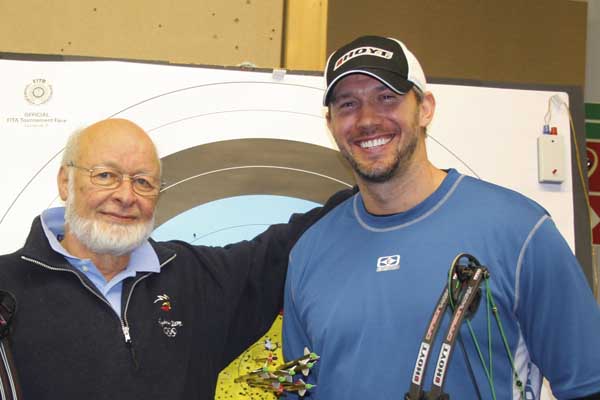
Surround yourself with greatness and you will become greatness. I was fortunate to always have open arms from Mr. Beiter and owe many things to my training days there. A true ambassador to all high level archers. You will be missed greatly!
Dedicated to Werner Beiter.


